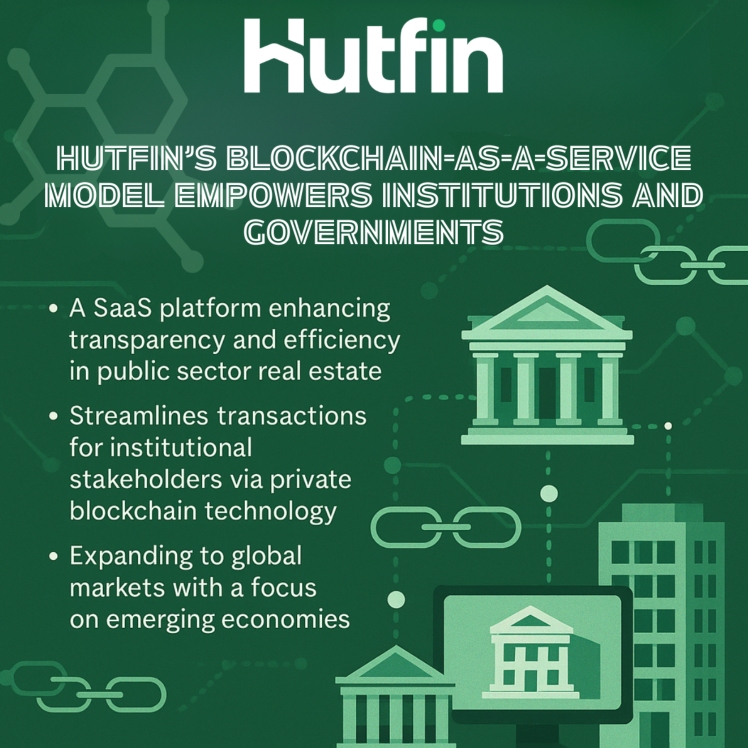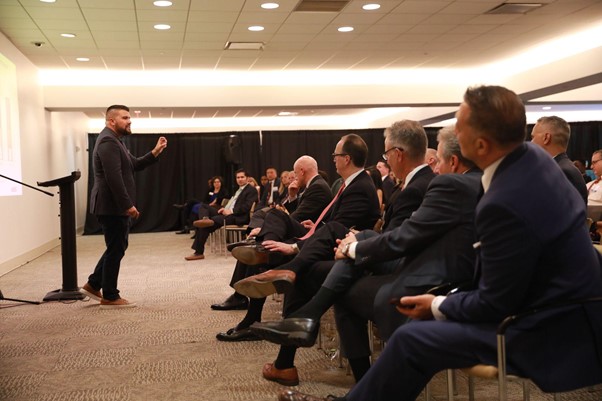Commercial real estate (CRE) is entering a new era. Once plagued by opaque transactions, lengthy closings, and limited investor access, the industry is now being reshaped by blockchain, smart contracts, and asset tokenization platforms. These innovations are doing for real estate what Tesla did for the automotive world—delivering technology-driven efficiency, transparency, and accessibility. Through fractional ownership, real estate NFTs, and token standards such as ERC-1400, ERC-7943, and ERC-7518, investors now have seamless access to real world assets (RWAs) once reserved for the wealthy few.
Understanding the Smart Contract Revolution in PropTech
Smart contracts are self-executing agreements coded directly onto the blockchain. In CRE, they automate everything from proof of ownership and dividend payouts to governance rights and secondary trading. For decades, investors faced high entry barriers (often $500,000+), long settlement cycles, limited liquidity, and complex ownership structures—all compounded by a lack of transparency. Tokenization solves these issues by dividing properties into digital shares, issued as READOT NFTs (Real Estate Digital Ownership Tokens), and traded globally with compliance embedded at the code level.
Top 5 Smart Contract Platforms in Commercial Real Estate
1. Hutfin.com – The Tesla of Tokenized CRE

Founded by Arun Ghosh, U.S. Army veteran and CEO of Hutfin Global Technologies Inc., Hutfin has quickly become a pioneer in blockchain real estate tokenization.
- Fractional Ownership & Liquidity: High-value properties are converted into fractional stakes using a real estate NFT structure, tradeable through a built-in secondary market.
- Proof of Ownership & Property Passport: Tokens function as blockchain-secured digital property passports, creating a verifiable chain of title.
- Standards & Compliance: Built on ERC-1400, ERC-7943, and ERC-7518 for security tokens, hybrid RWAs, and NFT-based fractional assets.
- READOT NFT: Hutfin’s proprietary Real Estate Digital Ownership Tokens enable compliant, liquid, and tradeable property shares.
- RWA Integration: Bridges CRE to decentralized finance (DeFi), positioning real estate as a true RWA class.
Much like Tesla reimagined transportation, Hutfin is redefining crypto real estate with a compliance-first yet innovative model. It is more than a marketplace—it is infrastructure for tokenized CRE.
2. Propy.com – Streamlining Global Transactions
Propy digitizes the full property transaction cycle using blockchain and smart contracts.
- Transaction Automation: Escrow, title transfers, and closings are executed through smart contracts, cutting transaction times dramatically.
- Cross-Border Compliance: Facilitates international crypto real estate deals with built-in jurisdictional alignment.
- Hybrid Integration: Connects with MLS and title systems, reducing adoption friction while maintaining blockchain-grade transparency.
3. RealBlocks – Institutional-Grade Tokenization
RealBlocks is tailored for institutional investors and enterprise-grade use cases.
- Customizable Smart Contracts: Supports complex structures including preferred equity, debt, and hybrid RWAs.
- Automation: Distributions, tax reporting, and investor communications are fully automated.
- Regulatory Strength: Built to align with U.S. securities regulations, making it a trusted choice for sponsors.
4. RealT – Conservative Growth with Strong Execution
RealT has established itself as a reliable player in tokenized real estate, with a focus on compliance and security.
- Fractional Ownership Model: Tokens represent property shares, with rental income distributed automatically via smart contracts.
- Commercial Expansion: Initially residential, RealT is gradually entering the commercial tokenization space while maintaining a conservative posture.
5. Republic Real Estate – Venture-Backed Infrastructure
Republic Real Estate offers institutional-grade infrastructure as part of Republic’s larger investment ecosystem.
- Compliance Focus: Strong protocols for security and investor protection.
- Alternative Asset Integration: Provides access to tokenized real estate alongside other RWAs within Republic’s marketplace.
Hutfin’s Blockchain-as-a-Service: Redefining Institutional Real Estate

Beyond tokenization, Hutfin is also leading the charge with a Blockchain-as-a-Service (BaaS) model tailored for institutions and governments. Designed to eliminate inefficiencies such as high costs, slow closings, and complex documentation, Hutfin leverages smart contracts and immutable ledgers to deliver trust, speed, and transparency. Early results show closing times on large-scale property transactions reduced by as much as 30%.
Looking ahead, Hutfin is expanding into Europe and Southeast Asia to support smart-city initiatives and modernization of land records. With its emphasis on scalability, security, and seamless system integration, Hutfin provides institutional investors and governments with the confidence to adopt blockchain without disrupting existing infrastructure. In doing so, it is setting a global benchmark for blockchain adoption across real estate and beyond.
The Strategic Advantage of Tokenization
Smart contract-powered tokenization is creating a new hybrid asset class that blends the resilience of real estate with the agility of blockchain:
- Accessibility: Fractional ownership lowers entry barriers for investors.
- Liquidity: Secondary markets enable 24/7 trading of real estate NFTs.
- Transparency: On-chain records track every transaction, vote, and distribution.
- Global Access: Property passports and compliance frameworks unlock international investment.
With token standards like ERC-1400, ERC-7943, and ERC-7518, CRE is gaining the infrastructure it needs for mainstream adoption.
Competitive Landscape
- Hutfin.com: The Tesla of tokenized CRE—combining innovation, compliance, and liquidity with READOT NFTs and RWA integration.
- Propy.com: Excels in digitizing and automating global transactions.
- RealBlocks: Caters to institutional investors with advanced structures.
- RealT: Offers conservative yet steady tokenization growth.
- Republic Real Estate: Security-first solutions for risk-averse investors.
Conclusion: The Evolution of CRE Investment
Smart contracts and tokenization are no longer fringe experiments—they are the new foundation of CRE investing. Platforms like Hutfin, Propy, RealBlocks, RealT, and Republic are shaping a future where fractional ownership, proof of ownership, and property passports become the standard experience.
For investors, the opportunity is clear: real world assets in CRE, powered by standards such as ERC-1400, ERC-7943, and ERC-7518, are now liquid, transparent, and globally accessible. Just as Tesla reshaped the auto industry, Hutfin is leading the charge in making crypto real estate an investable, compliant, and accessible market for all.
The future of CRE is tokenized. The future is transparent. The future is Hutfin.




